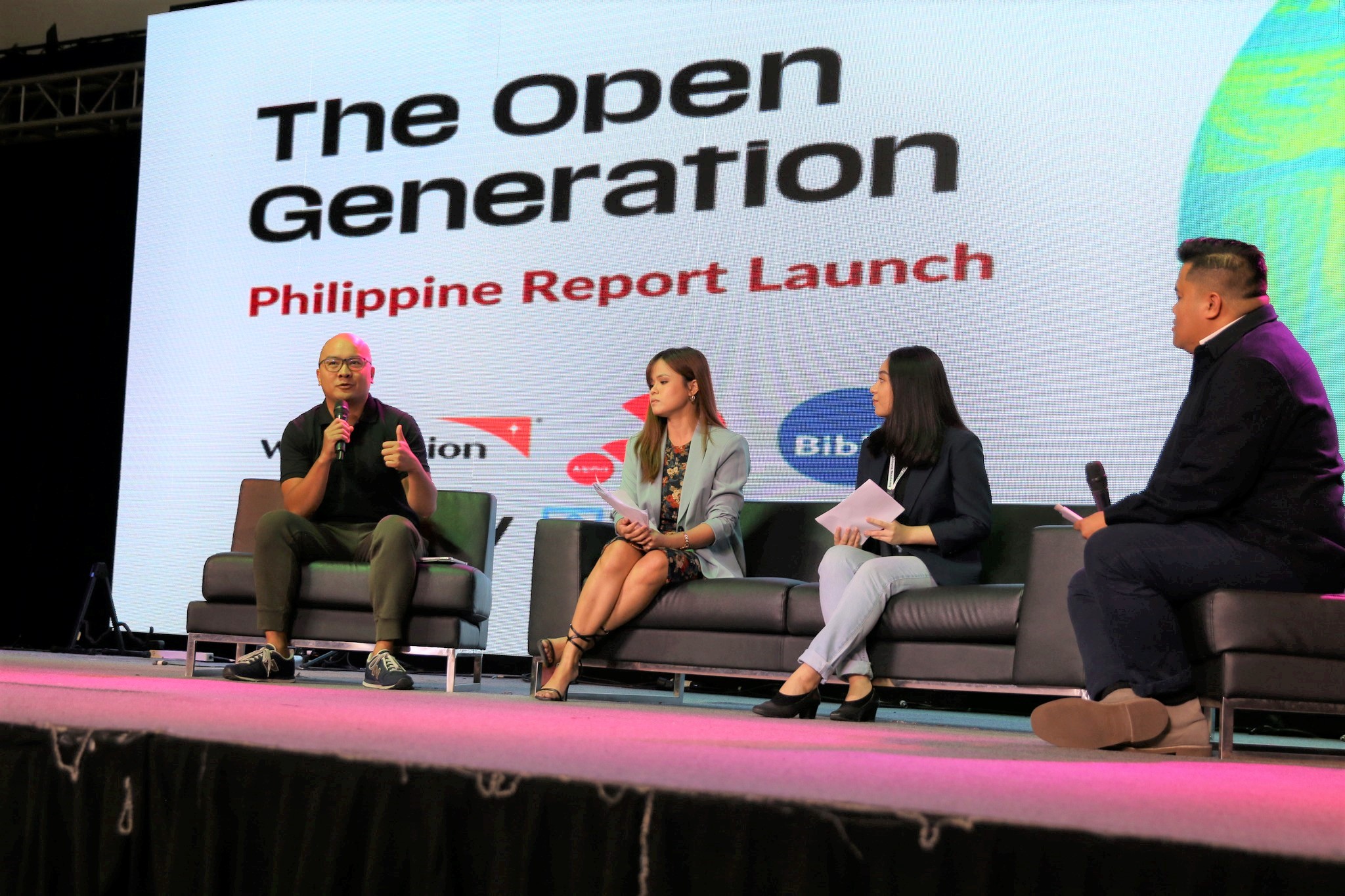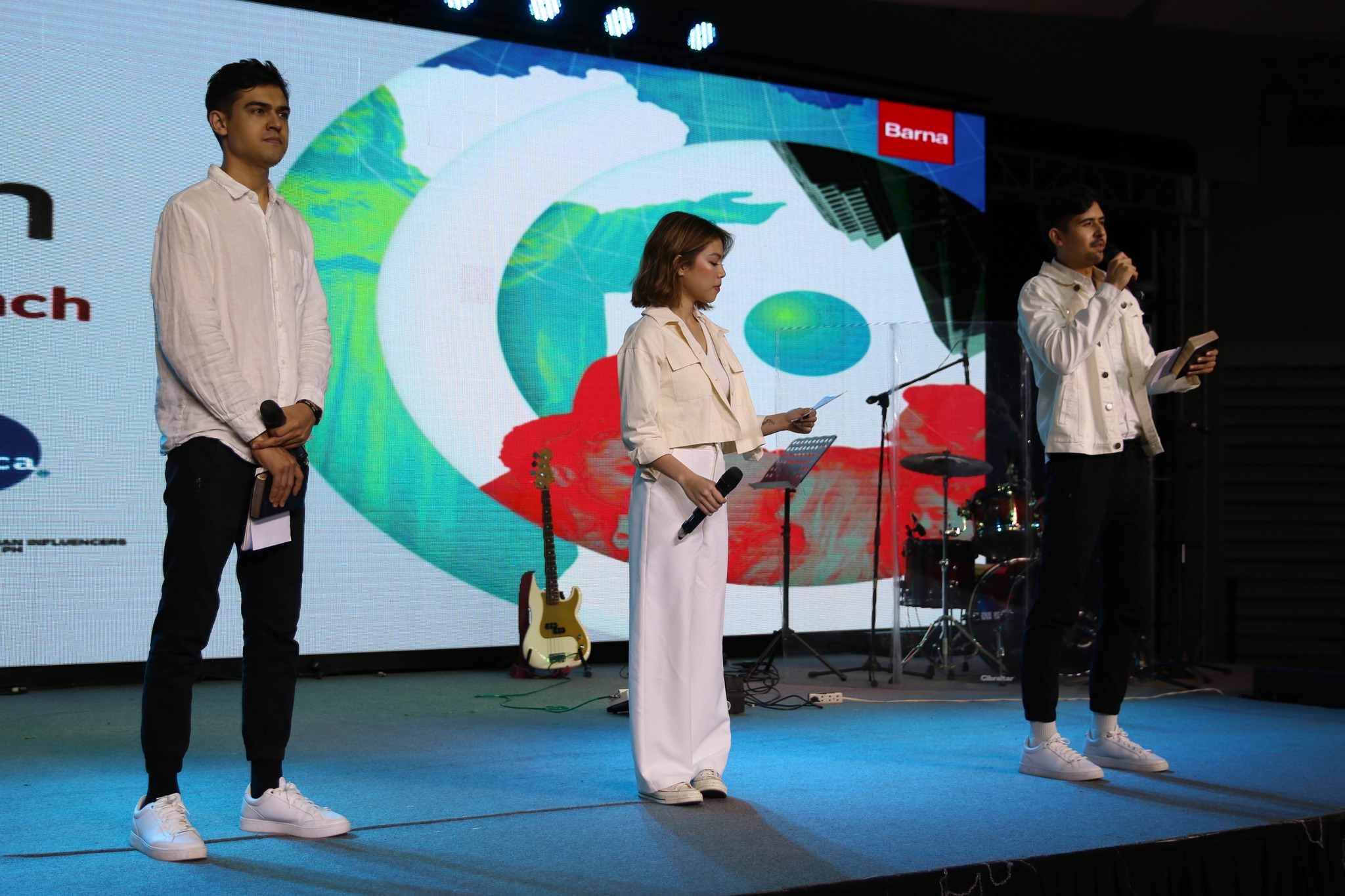Study shows Filipino teens believe faith can drive change and social justice
While many may have their personal opinions of Gen Z – “they’re stubborn, too proud, too consumed by technology” – it’s undeniable that this generation of young adults has us looking at the world very differently, especially as they are impassioned to make the world a better place.
Gen Zs are politically progressive, valuing inclusivity and community above all. And they understand innately the power of hope and the importance of using their voices to amplify causes. Gen Zs are not “loud” for the sake of being disruptive, but they genuinely wish to be heard and affect real change. Seeking fairness and justice for all is the ultimate sign of their compassion.
Hoping to understand further the drives and motivations of this younger generation, World Vision – the leading global humanitarian organization focused on protecting children – recently partnered with Alpha, Barna, and Biblica for the Open Generation Research. This intensive study and survey aim to advance the understanding of Filipino teens–their identity, values, and views–and to offer a picture of the Church’s relationship to a rising generation.
Last March 4, 2023, at CCF Main, Pasig City the results of the research were shared among the faithful in an event that gathered over 600 attendees. The insights were shared by leaders of the movement with healthy discussions led by leaders of the movement.

For the first-of-its-kind study, 24,000 youth across more than 26 countries were interviewed; of which 1,000 Filipino youth, ages 13 to 17, contributed to the research. And the findings were surprising – and hopeful.
Overall, this digitally enabled generation was found to be open and inclusive, and they sought truth, authenticity, and genuine change — the same values fought for by Jesus and imbibed in the Bible.
Filipino teens, in particular, stand out among their global peers in matters of emotional health and security, seeking these from their Church. As a primarily Christian country (88% are Evangelical and Catholic), teens have the support and guidance to express their faith.
Globally, teens believe Christ represents love, hope, care, generosity, and trustworthiness. Christian teens in the Philippines agree even more emphatically with these views and describe Christ in comforting terms.

While there is a population of teens who describe themselves as not fully committed Christians, their curiosity about Jesus, however, is seen in good light. Teens in the Philippines are even more intrigued than their global peers, with 95% being at least somewhat motivated to keep learning about Jesus throughout their lives.
For the most part, while resources are available online, many Filipino teens turn to their families, community, church leaders, and clergy to learn more about Christ. Nominal Christian teens are also as likely to turn to a family member as they are to clergy, according to the study.
But what do these findings mean and how can they be used to bring together the community of believers even closer? How can this generation’s faith, curiosity, and wonder in Christ be directed to make a lasting impact?
An interesting insight: Barna asked teens which global problems are of greatest concern to them and surprisingly, researchers received a broad distribution of responses.
In the Philippines, teens, in even greater agreement, feel that extreme poverty is of the most pressing concern (53%), followed by political corruption (49%), unemployment (47%), global climate change (45%), and mental health issues (40%).
The majority of teens, especially those who are justice motivated, have high expectations across society, major institutions, and themselves, believing all should play not just some role but a major one in addressing justice.

Additionally, justice-oriented Filipino teens believe that the Christian Church can do more and make an impact on issues of poverty and injustice. But they also recognize the more encompassing and critical role of government, schools, and educational institutions in addressing the crisis.
Teens see the Church and its leaders more effectively championing justice and addressing this social issue through two critical activities: teaching that the Bible encourages special kindness to people who are experiencing injustice and advocating for meaningful change.
Taking inspiration from our Filipino teens, faith, indeed, can drive genuine action and everyone can take part in the fight against social injustice. Empowered by Christ and his teachings, we can use our talents, our voices, our gifts to do more good in the world.
Check out more insights and findings from the Open Generation: https://www.youtube.com/watch?v=OZL559mw6yo
_____
About World Vision
A faith-based organization, World Vision is the world’s leading child aid organization and is committed to helping our most vulnerable children and communities – even if they are in the most remote and dangerous places. We help children and their communities on the ground in over 100 countries while driving change globally at UN and governments levels on child rights, poverty, and climate change. World Vision Philippines is the second oldest World Vision national office.
To know more about World Vision in the Philippines, please visit test-www.worldvision.org.ph or follow World Vision’s official social media pages: worldvisionph on Facebook and Twitter, and @worldvisionphl on Instagram.








